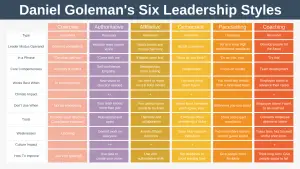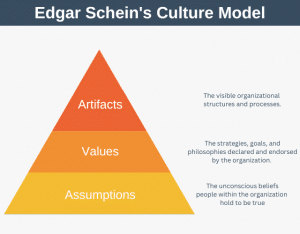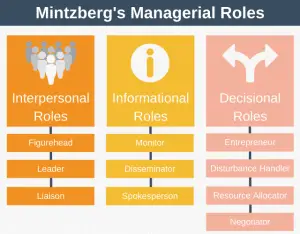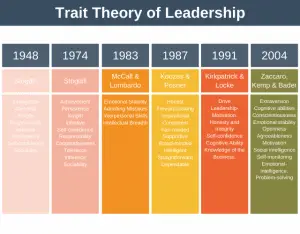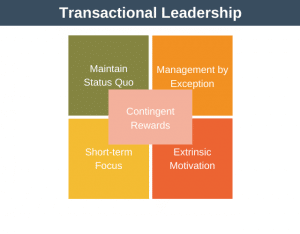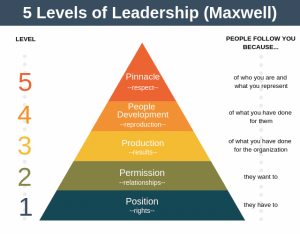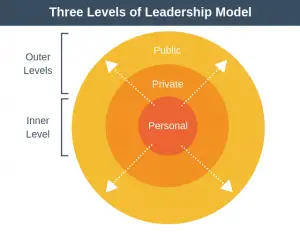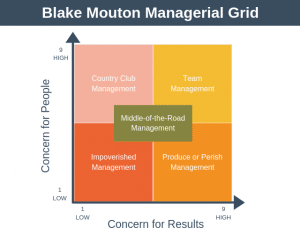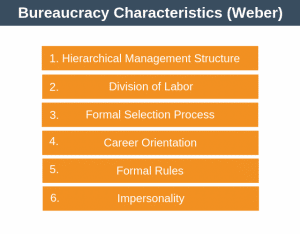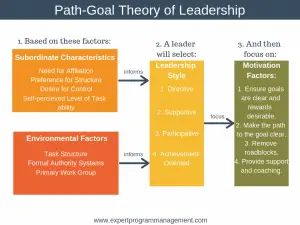Power in the workplace can exist in many different forms. It can exist even without a formal organizational hierarchy in place, and it can exist outside of any formal hierarchy that does exist. One particular type of power is called Referent Power. It is one of The 5 Types of Power identified by psychologists John R. P. French and Bertram Raven in 1959.
Referent power is defined as the ability of a leader in influence a follower because of the follower’s admiration, respect, or identification with the leader. Another way to define this power is that a follower will refer to what they think their leader would do and do the same. You use this power when you use your status as a role model to get one or more followers to take some kind of action.
As you can see from the above definition, it is not a formal type of power, but rather a personal power. Where does this type of power come from? Well, unlike formal power, referent power is bestowed on a leader by their followers. Within an organizational context, this type of power becomes increasingly important as an organization moves away from autocratic leadership towards a more collaborative style where people work together to solve problems to get things done.
In the Workplace
Organizational leaders and managers who have referent power have frequently gained this power over time by modeling the behavior they expect to see in others over a long period of time. This demonstrates appropriate conduct to the followers.
This types of power is also gained over time by delegating increased authority and autonomy to subordinates. In general society, celebrities have this type of power, which is why they are often paid a lot of money to advertise products to us. Their status as a role model makes us want to be like them and so we buy products that they promote as we think it will make us more like them.
Referent Power Examples
From the entertainment world, Laga Gaga is an example of someone with referent power, having 67 million Twitter followers. These people respect her and want to know what she is up to. Some even aspire to be like her. In this respect, she has referent power over her followers.
From the business world, Elon Musk has referent power. The followers that work for him are proud to do so, and share his core value of using technology for the betterment of the world.

Referent Power Advantages
Some of the advantages of this type of power include:
- Bureaucratic obstacles are reduced through good working relationships and effective collaboration.
- A great referent leader can inspire workers to be committed to their job.
- Consistently modeling the desired behavior can lead to decreased counterproductive behavior.
Referent Power Disadvantages
There are a few things to watch out for with this type of power:
- Where a very strong organizational culture exists, this may override the referent power of the leader. In other words, the leader may model the behavior they wish to see, but if a different behavior is the cultural norm in the organization then it will be difficult to use referent power to get things done.
- The more organizational layers below the leader the harder it will be for their referent power to reach the bottom of the organization. Because top leaders are often far removed from those on the bottom of the organization chart, they may even have never spoken, it is difficult for referent power to pass down the organization chart, as those at the bottom will never have seen the behavior modeled.
- It takes time to develop trust, so referent power doesn’t work well where there is high employee turnover.
- Referent power is also not appropriate for crisis situations, for example, a failing business unit that must be turned around as soon as possible, and there isn’t the time needed to build the trust that referent power needs.
Summary
Referent power is defined as a leader’s ability to influence their followers because of the high regard in which their followers hold them. You build this type of power over time by modeling the behavior you expect to see in others, and by giving employees increased autonomy to do their jobs.
Image credit: Oninnovation
